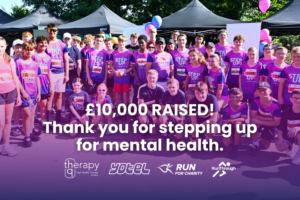Resolution Foundation released a report in February 2024 concluding a three-year study on young people’s mental health and its impact on education and work.
Mental health issues are rising among young people, affecting their education and job prospects. Factors such as ethnicity, sexual identity, and employment status influence these trends. Possible causes include the Covid-19 pandemic, social media use, and academic pressure. There’s a significant increase in young people taking antidepressants and claiming disability benefits due to mental health issues. This puts pressure on the benefits system and health services. Understanding these trends is crucial for policymakers to support young people’s wellbeing, employment, and careers.
The impact of young people’s mental health on education
Young people’s mental health affects their education significantly. More young people are facing mental health difficulties, with 23% of 11-16-year-olds and 23% of 17-19-year-olds likely affected by 2023. Girls, in particular, are experiencing a rise in mental health difficulties. Mental health challenges lead to lower school attendance and poor learning outcomes, especially for exams. Students often find school stressful, facing bullying and negative teacher attitudes. College offers more support and practical learning opportunities. However, mental health difficulties also make exam retakes daunting. Many seek support from schools, where counselling can be beneficial, but access varies. The most deprived areas face greater challenges accessing mental health support.
While primarily a health issue, addressing mental health in educational settings is crucial, and possible with initiatives such as the Mind of The Student workshop programmes which specifically target the interaction of mental health and education by educating young people about common mental health difficulties, how to manage, and signposting for further support.
“Yes I have learnt many things like depression, anxiety and confidentiality and how to deal with them. I will definitely use this for myself. Thank you for the tips” – Feedback from a student
“What i like best about this mental health workshop is that it was a unique opportunity to learn everything about mental health” – Feedback from a student
The impact of young people’s mental health on employment
People facing mental health challenges often find it difficult to secure stable employment, irrespective of gender disparities in mental health issues. Additionally, education levels play a significant role in job prospects, with full-time students experiencing fewer hurdles compared to non-graduates regarding the impact of mental health on future careers, prompting further inquiry into the intersection of mental health and education.
A policy agenda for young people with mental health problems
The policy agenda for young people with mental health problems focuses on early intervention, second chances in education, guidance for non-university paths, and mental health training for managers. Mental health support in educational settings is crucial, but currently, only a third of students have access to it, with colleges receiving even less support than secondary schools. Improving this requires more investment in Mental Health Support Teams and better collaboration with colleges. Extending support through Department for Work and Pensions Youth Hubs and enhancing non-academic pathways are also vital. Evidence-based policies are necessary to prevent future generations from enduring the challenges of poor mental health, with early intervention and support offering long-term benefits for both individuals and society. Mind of The Student addresses this need for early intervention work regarding mental health within education settings, aiming to close the gap by increasing the currently low provision of mental health awareness and support in schools, particularly in deprived areas.
Reference
Resolution Foundation. (2024). Available at: https://www.resolutionfoundation.org/app/uploads/2024/02/Weve-only-just-begun.pdf





